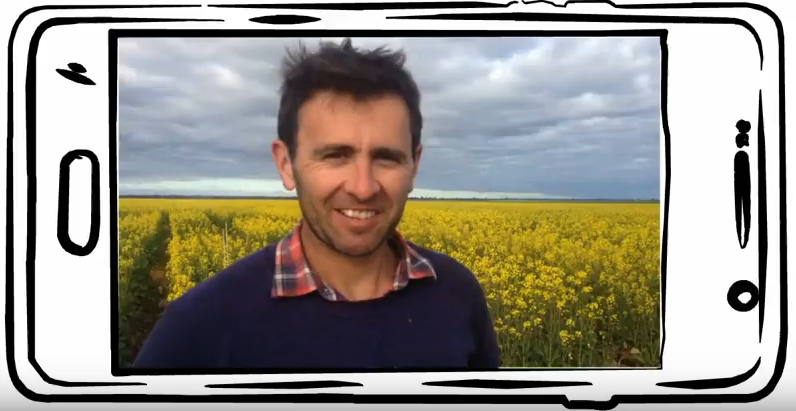Case Studies can be an excellent means to demonstrate and field test practices under circumstances that farmers are familiar with. They are also excellent for providing information remotely, in online environments and for farmers to follow over time and as seasonal conditions or circumstances change.
This can be particularly useful during the pandemic.
They also enable results to be explored as they happen.
Case Studies can analyse relatively simple practices such as time of sowing, up to more complex, farming system wide changes, such as diversification into new enterprises or implementation of new technologies. They can also be a means to demonstrate how challenges such as pest and diseases, fire recovery or drought are being dealt with.
For example, these Case Study Orchards are documenting their journey implementing Integrated Pest and Disease Management in apple and pear orchards. Click here: Case Study Orchards.

Case Study Methods
Direct observation – Allowing others to observe, observe and record or the provision of a reconstruction of what has occurred.
Interviews – The collection of information from participants and/or observers who have a good knowledge on what is happening or has happened.
Typical Strengths of Case Studies
- They provide a means to analyse an issue or situation in the “real world”, in an in-depth manner.
- The farmer’s knowledge and experience can be drawn upon.
- If typical, they provide the means for people to easily relate to what is occurring or has occurred.
- They are information rich and can provide a lot of qualitative data at the one time. Covering all of the factors that are in play, in a real world context.
- Unforeseen or unintended consequences can be identified, i.e. a case study can also be an important test. They can provide information that can be difficult to come by, via other means.
- They can be ongoing and provide an opportunity for ongoing analysis and demonstration.
- People can have access to Case Study information via a variety of mediums.
- Farmer to farmer interactions are one of the most trusted forms of agricultural extension for engaging with farmers.
- The provide an excellent means for genuine and focussed collaboration between researchers, extension professionals, other industry stakeholders and farmers.

Typical Weaknesses of Case Studies
- They are typically only a small sample size.
- They generate mainly qualitative information, which is subjective, rather the quantitative information, which is more objective.
- They can be time consuming to implement.
- They are open to bias in both the participants and observers.
- A poorly implemented Case Study (for whatever reason), can be as disservice to the technology in question, potentially damage the reputation of the stakeholders involved and adversely effect the likely uptake by those following the Case Study or prevent the Case Study from being useable.
Steps to Setting Up Effective Case Studies
- Ensure the desired outcomes, agenda and required context is very clear.
- Ensure the required resourcing is secured for the predicted life of the case study.
- The target market (the audience) needs to be clearly defined.
- Critically, choose the right subjects/participants that the target audience will respect and relate to, ensure the circumstances are “normal” to the target market.
- Ensure the scale of the case study is easy for the target audience to relate to. Make it real and relatable.
- Ensure the timeframe and availability of observations and information is clearly understood by all stakeholders, where possible follow the process through from beginning to end. Have a clear communication plan.
- Make case studies easy to access, read and follow.
- Ensure the process can be agile and adaptable to cope with the unexpected or changes in circumstances.
- There will typically be a lot of qualitative information, try and include quantitative data, wherever possible and practical. Whilst recognising case studies cannot be a statistically validated research option.
- Evaluate, learn and continuously improve the case study approach as you go.
Developing Case Studies is not an exact science. Engage with extension agents who have set up case studies for the same industry, similar technologies and practices or circumstances and learn from them what has worked well and any issues they may have had. This will help with the planning and implementation of your Case Study and increase the likelihood of success.
